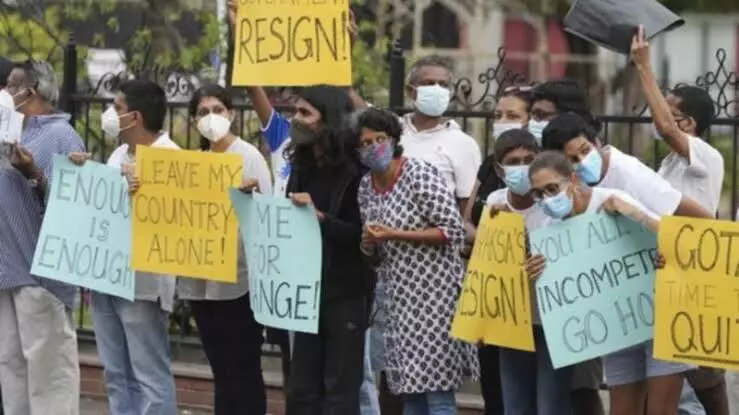
Sri Lanka opposition rejects President's unity govt offer, demands his resignation instead
text_fieldsColombo: Sri Lanka's opposition has dismissed President Gotabaya Rajapaksa's invitation to join a unity government as "nonsensical" and instead demanded he resigns over the country's worsening shortages of food, fuel and medicines.
At a media briefing held on Monday, the Leader of the Samagi Jana Balawegaya, Leader of the Opposition Sajith Premadasa has said that the SJB is not ready for any agreement or governing with the government led by President Gotabaya Rajapaksa.
The Opposition Leader said that what should be done was to oust the government in an instant and that the Samagi Jana Balawegaya is ready for that. Apart from that, the 'deal politics' with a corrupt government would never be carried out by the SJB, he added.
Leader of the JVP Anura Kumara Dissanayake also stated at a media briefing that the people of the country are urging the President to go home and that his party will not accept his request to form an interim government.
Mr Rajapaksa had earlier on Monday informed senior party members that he will not step down as Sri Lankan President but is ready to hand over the government to whichever party proves that it has a majority of 113 seats in Parliament.
A statement from President Gotabaya Rajapaksa's office on Monday said he "invites all political parties represented in the Parliament to come together to accept ministerial portfolios in order to find solutions to this national crisis."
Mr Rajapaksa's overture came as armed troops looked to quell more demonstrations over what the government acknowledges is the country's worst economic crisis since independence from Britain in 1948.
Every member of Sri Lanka's cabinet except the president and his elder brother, Prime Minister Mahinda Rajapaksa, resigned late Sunday.
The president and his older brother were continuing to hold onto power, despite their entire politically powerful family being the focus of public ire.
Two other brothers, Finance Minister Basil Rajapaksa and Irrigation Minister Chamal Rajapaksa, were among those who resigned, along with the prime minister's son, Sports Minister Namal Rajapaksa. Those resignations were seen as an effort to pacify public anger at the Rajapaksas while retaining executive, defence and law-making powers in the family.























